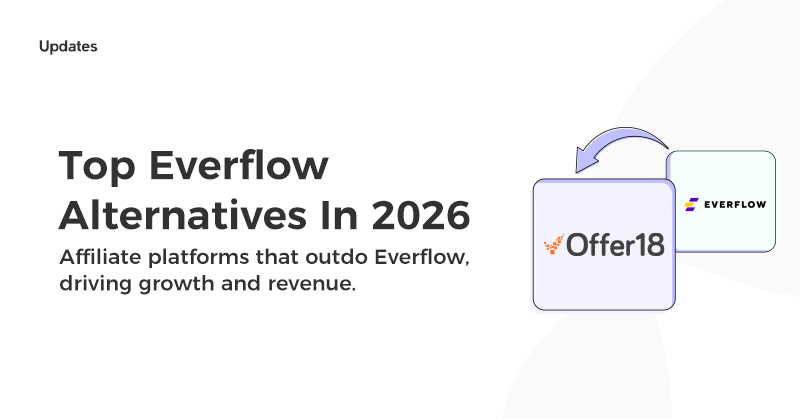
Share
Modern marketing departments need to manage plenty of clients and campaigns at once. In the past, companies and agencies were hiring plenty of people to handle a number of projects, but that's pretty expensive and not manageable in the long run. That's why the need for advanced and sophisticated solutions is bigger than ever.
The rise of marketing platforms changed the way companies advertise their services, as well as their collaboration with marketing agencies. But what is a marketing platform? What does it include, and what can we expect from it? Let's go over the marketing platform definition and how you can use it to improve your business returns.
What is a Marketing Platform by Definition?
We're starting with the marketing platform definition: A marketing platform is a tool, software, or suite of tools designed to help businesses, organizations, and agencies plan, execute, and measure marketing activities across various channels. These platforms integrate multiple marketing functions into a cohesive system so marketers can streamline their efforts, improve efficiency, and gain deeper insights into their campaigns.
Key Features of Marketing Platforms
It all starts with a multichannel campaign management as advertising is present on email, social media, search engines, and traditional media for sure. It successfully integrates with CRM (Customer Relationship Management) systems, to personalize marketing efforts.
You can also use it to manage social media accounts and deliverables too. There's an array of many other common features each marketing platform has. :
-
Analytics and Reporting: This one provides detailed insights into campaign performance, customer behavior, and ROI through precise marketing data analytics and reporting features.
-
Automation: An option to automate repetitive tasks like email marketing, social media posting, and ad placements to save time and improve consistency.
-
Content Management: Makes the creation, storage, and distribution of marketing content easier, ensuring consistency and alignment with brand guidelines.
-
Ad Management: Helps in planning, purchasing, and monitoring online advertising campaigns across different platforms such as Google Ads, Facebook Ads, and others.
-
SEO and SEM Tools: Used to optimize websites for search engines and manage search engine marketing efforts.
-
Lead Management: Tracks and manages potential customers (leads) throughout the sales funnel, from acquisition to conversion.
According to the marketing platform meaning, these features help the users create, manage, analyze, and distribute marketing campaigns. That's way, the platform becomes a central place to track and improve engagement, resulting in successful campaigns.
What to Expect From Your Unified Marketing Platform?
As you can see from the marketing platform definition, the expectations can be pretty broad but important for marketing efforts. While defining the term is important, understanding what it means and brings is essential.
So, your unified marketing platform helps you manage the performance, assign roles and tasks, and automate some of the processes. Ultimately, it results in increased visibility through targeted channels, i.e., serving the right content to the right people through their preferred media - from one dashboard.By managing calendars, sharing folders, and delegating tasks, this software brings the marketing team together, no matter what branch they cover. It results in a smooth, consistent branding and story that target customers love and resonate with.
What Are the Most Common Types of Marketing Platforms?
Some marketing platforms feature one or more marketing activities, but there are all-inclusive solutions, too, for agencies and enterprises that run campaigns through different channels. These are the most common marketing platform types:
Email Marketing Platforms: A software that offers tools for creating, sending, and tracking email campaigns. The insights help the marketer run the next campaign smoothly and better targeted.
Social Media Marketing Platforms: A marketing platform featuring tools that help manage and analyze social media campaigns. As a result, you can optimize the campaign and deliver it more effectively to the target audience.
Search Engine Marketing Platforms: SEO and SEM tools to help you track the organic performance on search engines, as well as paid campaigns for specific keywords.
Content Marketing Platforms: Platforms focused on creating, managing, and distributing content. Help the business owners, marketing departments, and agencies to deliver quality content according to the lead's awareness stage.
All-in-One Marketing Platforms: Comprehensive tools that cover multiple aspects of digital marketing. They provide an intuitive dashboard to track campaigns through various channels and get an all-inclusive report on the performance.
Choosing an all-inclusive marketing platform helps the teams manage more campaigns at once. If targeting only specific channels, you can choose custom features that still answer the marketing platform definition, but create a more optimal choice for the potential users.
What Are the Benefits of Marketing Platforms?
Marketing platforms aren't inexpensive. Some of them may cost hundreds of dollars per month for the features they have. Still, when comparing the benefits with the money spent, it's obvious that the results generate revenue, increasing the ROI - making the marketing platform a worthwhile investment. The following benefits prove that well:
-
Increased Efficiency: Consolidating multiple marketing functions into a single platform saves time and reduces the complexity of managing different tools.
-
Better Data Integration: Centralizing data from various channels provides a unified view of customer interactions and campaign performance.
-
Enhanced Personalization: Advanced targeting and segmentation features allow for more personalized and relevant marketing messages.
-
Improved ROI: Detailed analytics and reporting help marketers make data-driven decisions, optimizing campaigns for better return on investment.
-
Scalability: Marketing platforms are designed to grow your business, allowing you to scale your marketing efforts as needed.
All the mentioned benefits are directly tied to the marketing platform definition. Considering them, it's easier to find the right platform for your business to assist you in creating a professional environment, increase the revenue, and run successful marketing campaigns.
Challenges and Considerations of Different Solutions
As you suppose, marketing platforms come with challenges and considerations. If you're already an experienced marketer, you know it's not always blooms and butterflies. It's the same for the marketing platforms that surely are efficient in generating revenue but come with challenges regarding:
-
Cost: High-quality marketing platforms can be expensive, especially for small businesses or startups.
-
Complexity: The nature of these platforms can make them complex to set up and use effectively.
-
Integration: Ensuring that the marketing platform integrates seamlessly with existing tools and systems can be challenging.
-
Training: Staff may require training to fully utilize the features and capabilities of a new marketing platform.
-
Data Privacy: Managing customer data responsibly and complying with regulations like GDPR is crucial.
We encourage you not to be afraid of these challenges. They're common when adopting new technologies, as it takes time for a marketing platform to become an integral part of the team or the whole department. With training, patience, and enough effort, all the considerations can easily go away. Remember, the marketing platform definition says it's easy to integrate and use, so a little more effort in learning how things work is beneficial.
Potential Drawbacks of Using Marketing Platforms
Different marketing platforms pose different challenges. Keep in mind that these won't happen with everyone but are possible in specific scenarios:
-
Changing Technologies: Some users aren't adapting to constant updates and new features.
-
Additional Costs: Sometimes marketing platform providers may change the feature costs, which is not convenient for companies on budget.
-
Training Requirements: Training takes time, but also can be costly if a mistake is made.
-
Over-Reliance on Software: Sometimes things lose personal touch, like direct communication, resulting in automating errors.
-
Overwhelming Features: Marketing platforms are often full of features people will never use, but they still make the software overwhelming.
Again, these aren't necessarily negative aspects but may affect the decision a business makes before investing in such software.
Final Words on the Marketing Platform Definition
The marketing platform definition, key features, types, and benefits help businesses make informed decisions on how to leverage these tools to enhance their marketing efforts and achieve their goals.
A well-chosen marketing platform means that the team is working smarter and more efficiently. Whether you're a startup or an established company, adopting the right platform can transform your approach to reaching customers and growing your brand.
Take the first step today—sign up for our 10-day free trial and learn how smarter marketing can help your conversion rates.
Related News

Offer18 Brings the Affiliate Pulse to the ChinaJoy
What Is The ChinaJoy Event? A global leader in the field of games and digital entertainment, the ChinaJoy event focuses on gaming as its core business. It cov
Jul 22, 2025
Top Everflow Alternatives In 2026
Everflow is an enterprise-level affiliate tracking solution built to meet the dynamic needs of established global brands, agencies, and ad networks. Everflow has been
Jul 21, 2025
Why Are Businesses Looking for Reassuring Alternatives to Affise?
Affise offers specialized performance tracking, multi-channel capabilities, advanced analytics, and detailed reporting — bespoke features that have earned marketers
Jul 20, 2025
Straight From the Head of Business Operations, Sukhwinder Singh - “How to Build a High-Impact Affiliate Marketing Program?
Setting The Foundation of an Affiliate Program A) Clear Goals And Vision The genesis of any high-impact affiliate marketing program starts with
Jul 14, 2025